
Lake Como: Italy's Enchanting Alpine Jewel
Nestled in the foothills of the Alps, Lake Como is a stunning retreat that has captivated visitors for centuries. With its deep blue waters, lush greenery, and charming lakeside villages, it is no surprise that this destination is a favorite among tourists from around the world. The lake's unique Y-shape is dotted with picturesque towns such as Bellagio, Varenna, and Menaggio. Each offers its own blend of historical architecture, cobblestone streets, and cozy cafes. Take a leisurely boat ride across the lake to experience the breathtaking views and serene ambiance that define Lake Como. Apart from its natural beauty, Lake Como is steeped in history and culture. Visit the opulent Villa Carlotta with its splendid gardens or explore the medieval Castello di Vezio. Whether you're a nature lover, history buff, or simply looking to unwind, Lake Como offers a perfect escape from the hustle and bustle of everyday life.
Local tips in Lake Como
- Visit during the shoulder seasons (spring and fall) for fewer crowds and pleasant weather.
- Consider staying in towns like Varenna or Menaggio for a more authentic and tranquil experience.
- Take a ferry tour to explore multiple towns around the lake in a single day.
- Pack comfortable walking shoes to navigate the cobblestone streets and hilly terrain.
- Sample local cuisine, especially fresh lake fish and traditional Italian dishes.
Lake Como: Italy's Enchanting Alpine Jewel
Nestled in the foothills of the Alps, Lake Como is a stunning retreat that has captivated visitors for centuries. With its deep blue waters, lush greenery, and charming lakeside villages, it is no surprise that this destination is a favorite among tourists from around the world. The lake's unique Y-shape is dotted with picturesque towns such as Bellagio, Varenna, and Menaggio. Each offers its own blend of historical architecture, cobblestone streets, and cozy cafes. Take a leisurely boat ride across the lake to experience the breathtaking views and serene ambiance that define Lake Como. Apart from its natural beauty, Lake Como is steeped in history and culture. Visit the opulent Villa Carlotta with its splendid gardens or explore the medieval Castello di Vezio. Whether you're a nature lover, history buff, or simply looking to unwind, Lake Como offers a perfect escape from the hustle and bustle of everyday life.
When is the best time to go to Lake Como?
Iconic landmarks you can’t miss
Cattedrale di Santa Maria Assunta - Duomo di Como
Discover the architectural grandeur of Cattedrale di Santa Maria Assunta, a highlight of Como's rich history and cultural heritage.
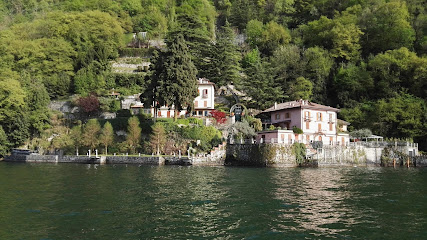
Villa Carlotta
Explore the enchanting Villa Carlotta, a captivating museum and botanical garden on Lake Como, offering art, history, and breathtaking views.
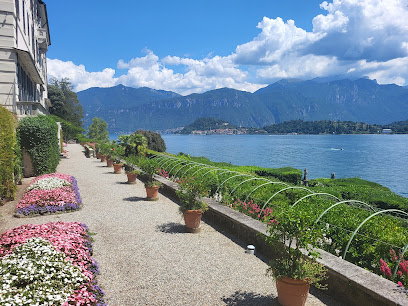
Villa del Balbianello
Discover the enchanting beauty and rich history of Villa del Balbianello, a must-visit villa on the shores of Lake Como, Italy.

Villa Olmo
Discover the elegance of Villa Olmo, a neoclassical villa on Lake Como, offering stunning gardens, rich history, and breathtaking views.
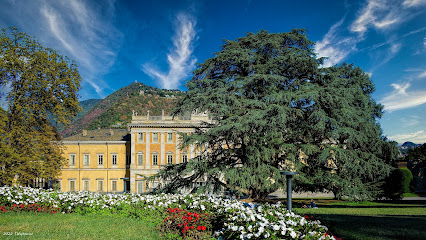
Castello di Vezio
Explore the enchanting Castello di Vezio, a historic castle offering breathtaking views of Lake Como and a captivating journey through Italy's medieval past.
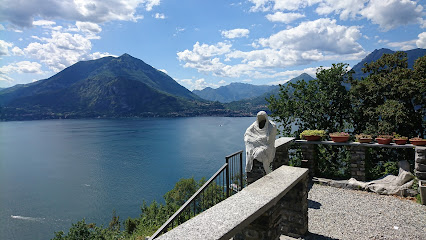
I Giardini di Villa Melzi
Explore the serene beauty of I Giardini di Villa Melzi, a stunning botanical garden in Bellagio, perfect for nature lovers and history enthusiasts alike.
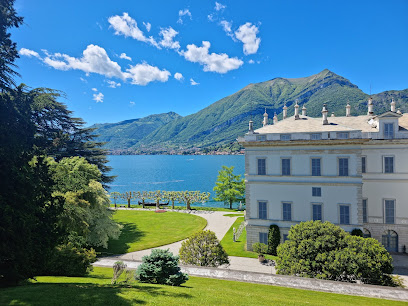
Porta Torre
Discover Porta Torre, Como's historic gateway, where medieval charm meets modern vibrancy in the heart of Italy's stunning Lake District.
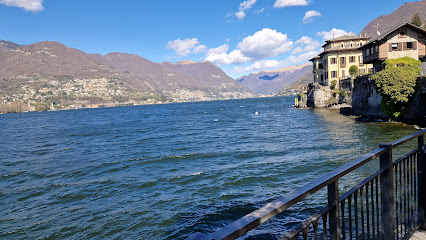
Tempio Voltiano
Explore the Tempio Voltiano in Como, a museum celebrating the life and inventions of Alessandro Volta, the father of electricity.
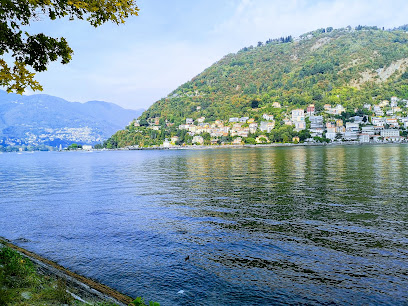
Punta Spartivento
Experience the stunning views at Punta Spartivento, the ultimate observation deck in Bellagio overlooking the breathtaking Lake Como.
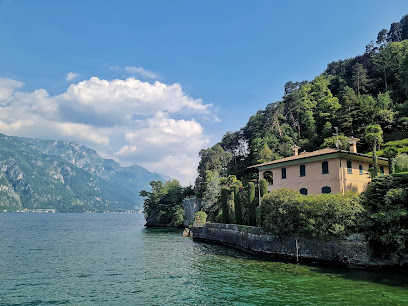
Basilica di San Fedele
Basilica di San Fedele: A Romanesque architectural wonder in Como, showcasing stunning frescoes and rich history in a serene atmosphere.
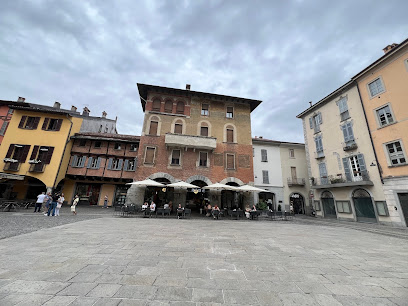
Alessandro Volta Statue
Explore the Alessandro Volta Statue in Como, Italy, a stunning tribute to innovation surrounded by vibrant piazzas and rich history.
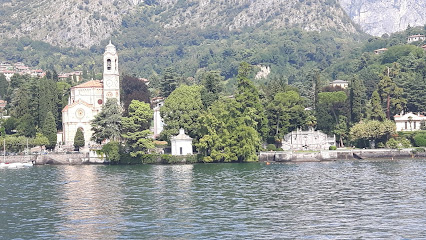
War Memorial
Explore the War Memorial in Como, a serene monument dedicated to local heroes, surrounded by stunning landscapes and rich history.
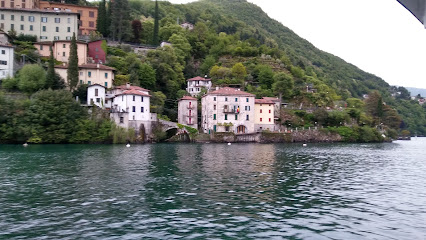
Monumento alla Resistenza Europea
Discover the Monumento alla Resistenza Europea in Como, a powerful tribute to heroism and sacrifice set against the stunning backdrop of Lake Como.
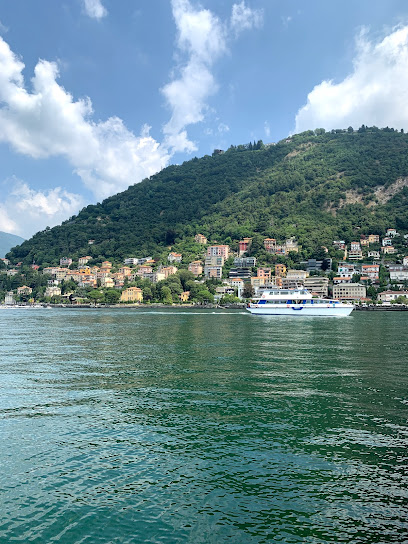
Broletto
Discover the rich cultural heritage of Como at the Broletto, a stunning medieval museum in the heart of the city.
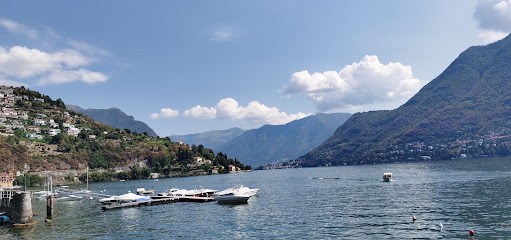
Lakeview Cernobbio
Explore the enchanting Lakeview Cernobbio, a historical landmark offering breathtaking views and a charming vibe on the shores of Lake Como.
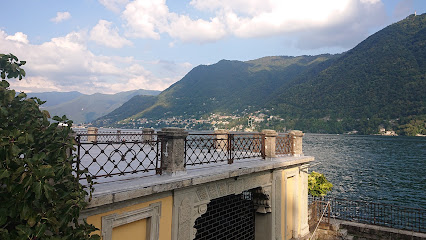
Unmissable attractions to see
Cattedrale di Santa Maria Assunta - Duomo di Como
Discover the stunning Cattedrale di Santa Maria Assunta, a captivating blend of Gothic and Renaissance architecture in the heart of Como, Italy.
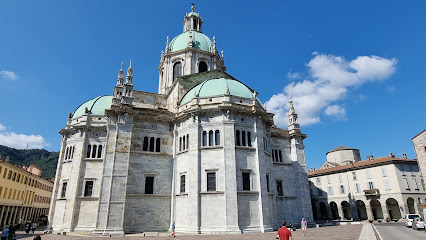
Ponte dei Salti
Discover the enchanting Ponte dei Salti, a historical bridge in Verzasca Valley, Switzerland, where stunning views and rich heritage await.
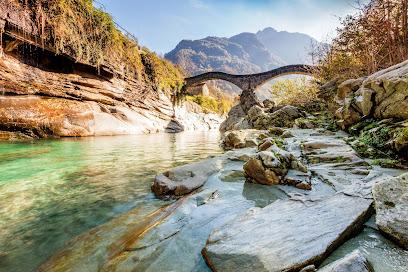
Faro Voltiano
Experience the breathtaking views and rich history at Faro Voltiano, a stunning lighthouse in Brunate, Italy, overlooking Lake Como.
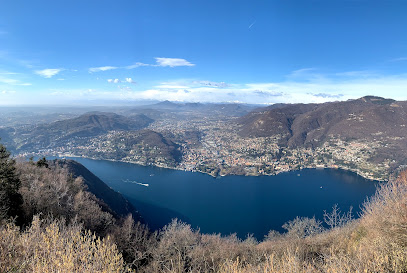
Porta Torre
Explore Porta Torre, a historical gem in Como, Italy, that showcases medieval architecture and offers stunning views of the vibrant Piazza Vittoria.
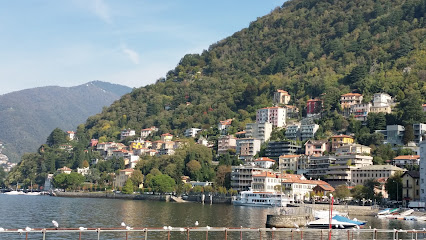
Tempio Voltiano
Explore the rich legacy of Alessandro Volta at Tempio Voltiano, a museum where science meets stunning lakeside views.
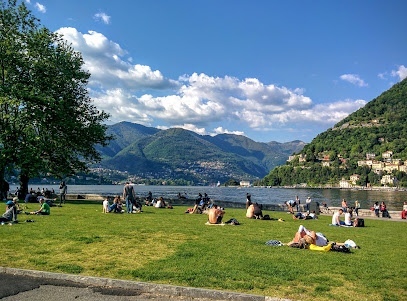
Falconeria Locarno
Experience the thrill of nature at Falconeria Locarno, a captivating animal park showcasing majestic birds of prey and diverse wildlife in stunning surroundings.

Parco Civico Teresio Olivelli
Explore the breathtaking beauty of Parco Civico Teresio Olivelli, a serene park in Tremezzo offering stunning views of Lake Como and lush gardens.
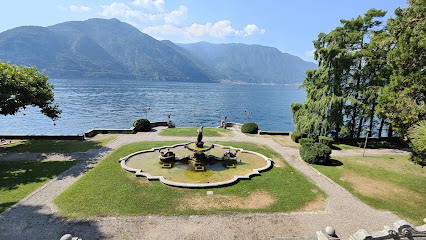
Lungolago Viale Geno
Discover the tranquil beauty of Lungolago Viale Geno, a stunning lakeside promenade in Como, offering breathtaking views and outdoor adventures.
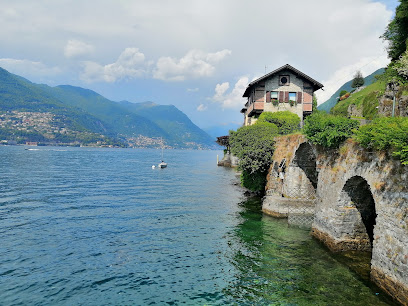
Botanical Garden of Villa Carlotta
Discover the exquisite beauty of the Botanical Garden of Villa Carlotta, a serene escape along the shores of Lake Como, filled with vibrant flora and stunning views.
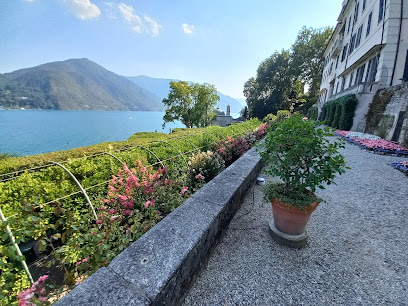
Alessandro Volta Statue
Explore the Alessandro Volta Statue in Como, a tribute to the father of electricity amidst charming architecture and vibrant local life.
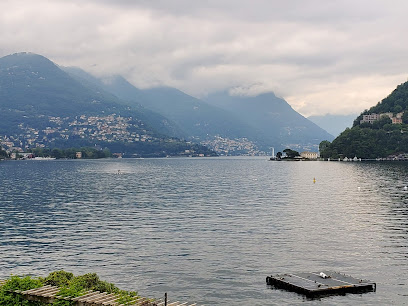
Campanone
Experience the iconic Campanone in Bergamo, a historical landmark offering stunning views and a glimpse into the city's rich cultural heritage.
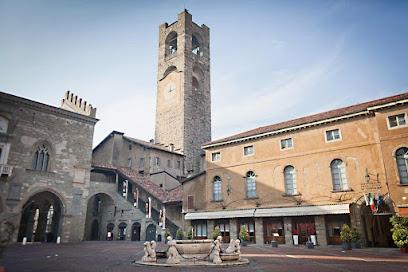
Life Electric
Discover Life Electric: a mesmerizing sculpture on Lake Como that embodies innovation and offers stunning views of the surrounding landscape.
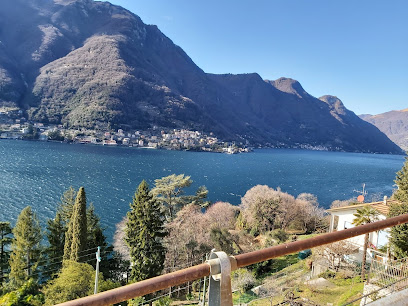
War Memorial
A towering World War I memorial in Como, designed by Giuseppe Terragni, honoring the city's fallen soldiers with Rationalist architecture.
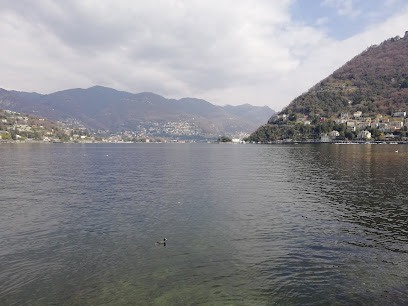
Saint Augustine Gate
Discover the historical allure of Saint Augustine Gate in Bergamo, a stunning landmark that connects the past with the present.
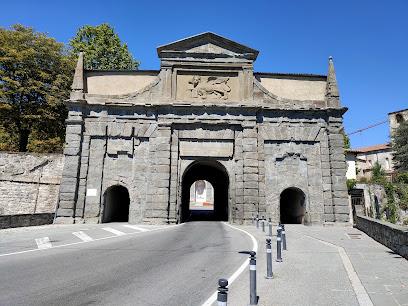
Il Giardino della Valle
Experience the tranquility of Il Giardino della Valle, a stunning community garden in Cernobbio, with breathtaking views and vibrant flora.
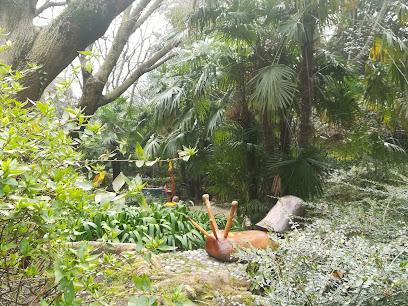
Essential places to dine
Ristorante Pizzeria Funicolare
Experience authentic Italian cuisine with stunning views at Ristorante Pizzeria Funicolare on Lake Como.
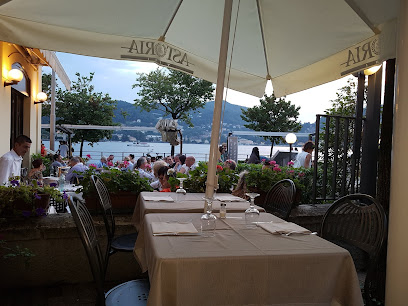
Ristorante Cervo
Experience authentic Italian flavors at Ristorante Cervo by Lake Como – where every meal is a celebration of culinary artistry.
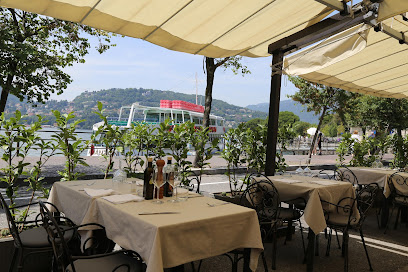
Ristorante Momi
Discover Ristorante Momi: Authentic Italian Cuisine with Stunning Views of Lake Como - A Must-Visit Destination for Food Lovers.
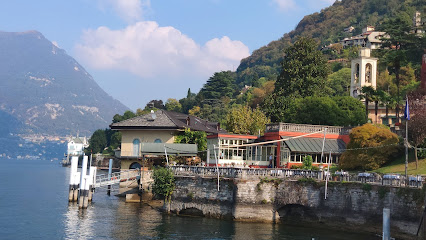
Ristorante Una Finestra Sul Lago
Experience authentic Italian flavors with breathtaking views at Ristorante Una Finestra Sul Lago in Carate Urio.
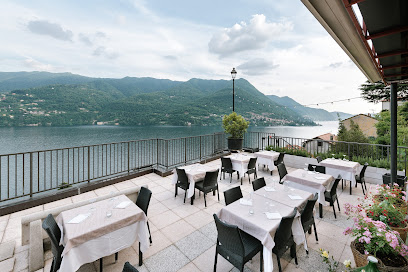
Lago Food&Co
Experience the best of Italian cuisine at Lago Food&Co, where exquisite flavors meet breathtaking views by Lake Como.
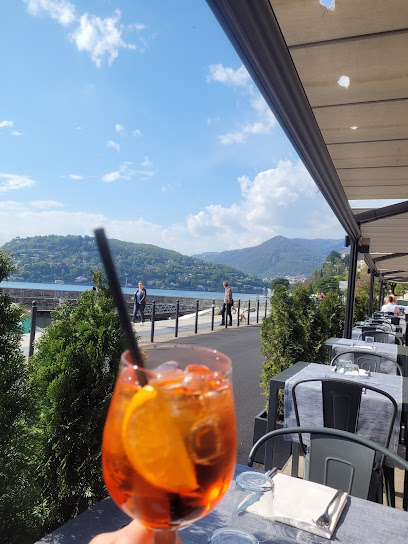
Ristorante Sociale
Experience authentic Italian and Lombardian cuisine at Ristorante Sociale, a culinary gem nestled in the heart of Como.
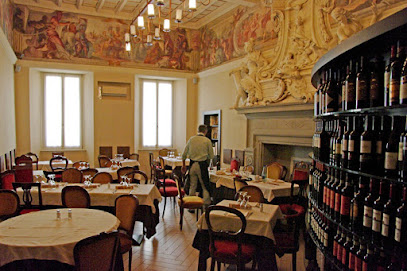
La Darsena
Discover La Darsena: A lakeside haven serving authentic Italian cuisine with breathtaking views of Lake Como.
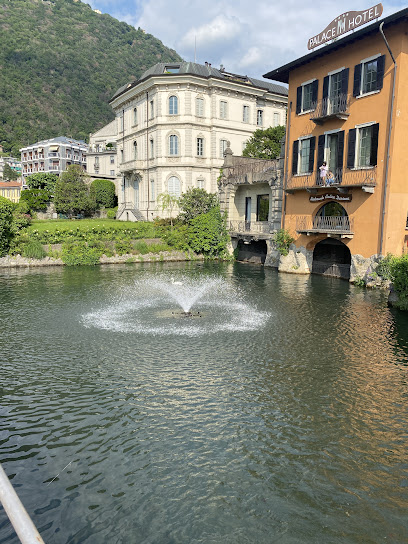
Osteria La Tana dei Pescatori
Discover authentic Italian seafood cuisine at Osteria La Tana dei Pescatori in Como—where every dish tells a story.
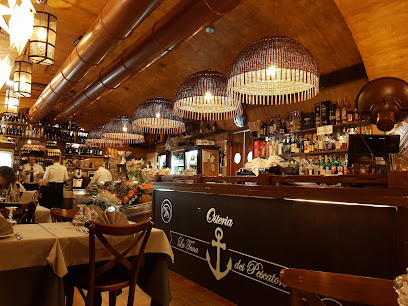
il Lughino, come Natura insegna - Como
Experience authentic organic Italian cuisine at Il Lughino in Como – where fresh ingredients meet culinary excellence.
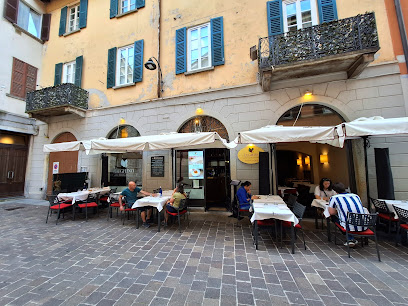
Passion Como
Discover the essence of Italian cuisine at Passion Como - a delightful bistro offering local flavors in a charming setting.
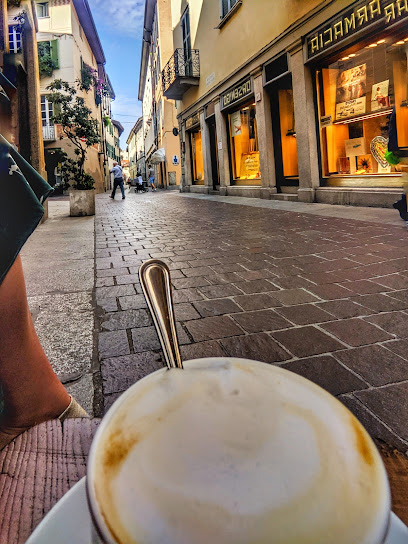
#PiazzaRomaComo APERTO
Experience authentic Italian cuisine at Piazza Roma Como, where every dish tells a story and every meal is a celebration.
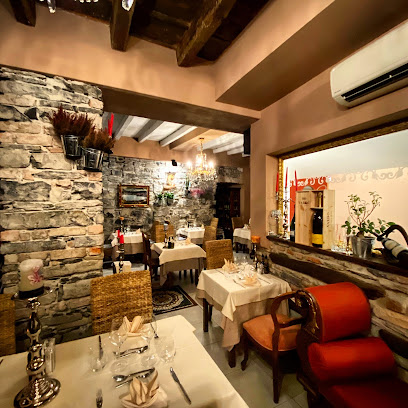
Trattoria San Giacomo
Experience authentic Italian cuisine with stunning lake views at Trattoria San Giacomo in Bellagio.
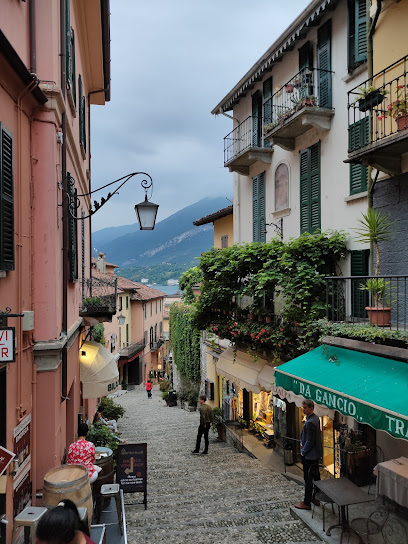
Locanda La Tirlindana
Experience exquisite Italian cuisine with breathtaking views at Locanda La Tirlindana on Lake Como.
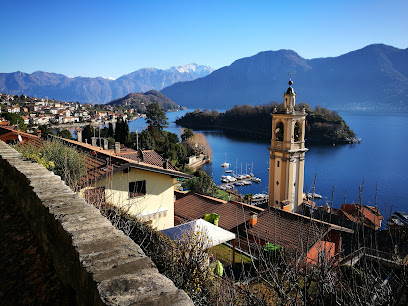
Trattoria del Porto
Experience exquisite seafood and authentic Italian dishes at Trattoria del Porto, where every meal offers stunning views of Lake Como.
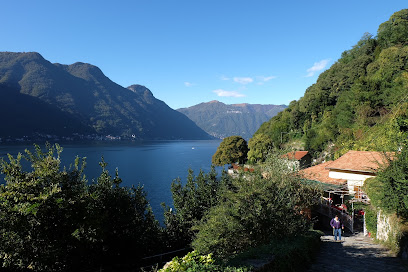
L'antica Riva
Discover exquisite Mediterranean and seafood dining at L'antica Riva by Lake Como—an unforgettable culinary experience amidst stunning lake views.
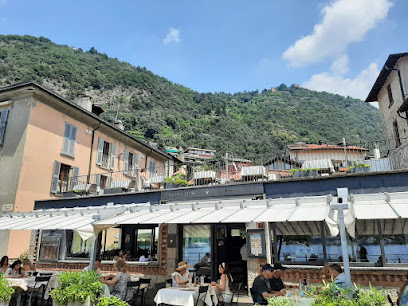
Markets, malls and hidden boutiques
SOLDOUT MILANO - Como
Discover unbeatable fashion deals at SOLDOUT MILANO in Como, your ultimate outlet mall destination for trendy clothing and accessories.
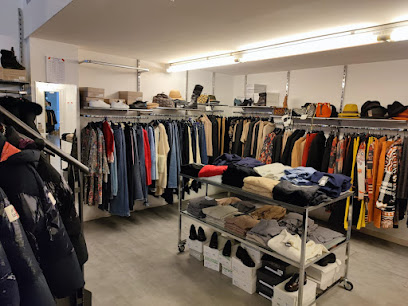
Como souvenir
Explore Como Souvenir: Your gateway to unique Italian treasures and handcrafted mementos from the enchanting city of Como.
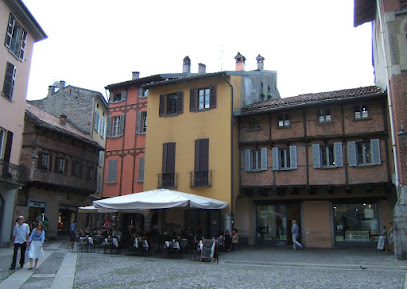
Azalea Silk of Como Bellagio
Experience the allure of Italian craftsmanship at Azalea Silk of Como Bellagio, where luxury meets elegance in every silk accessory.
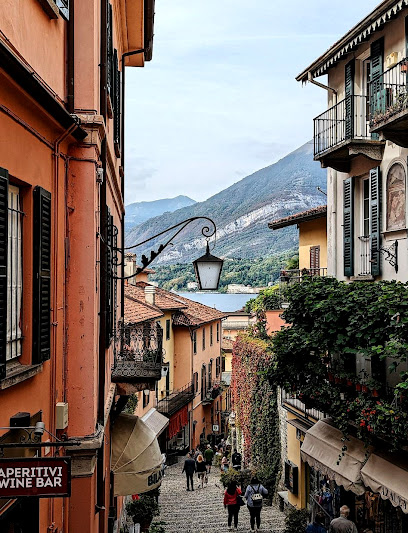
Quelli della Pelle
Explore the exquisite craftsmanship of Quelli della Pelle, your destination for unique leather goods in Bellagio, Lake Como.
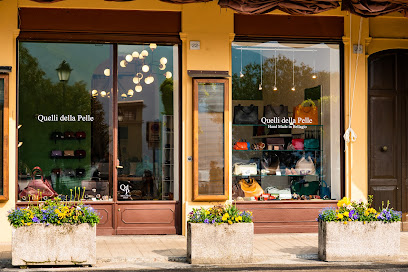
Il Pozzo
Discover unique local treasures at Il Pozzo, Varenna's charming store offering handmade crafts and authentic Italian souvenirs.
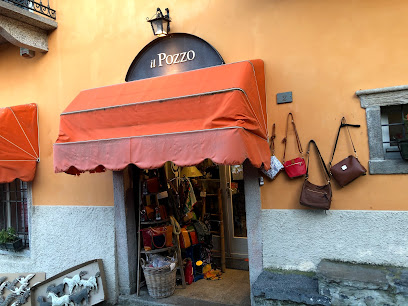
Azalea Luca Gandola
Experience the charm of Bellagio with a visit to Azalea Luca Gandola, where Italian style meets exceptional quality in clothing.
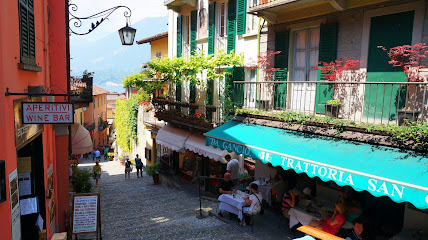
Grandi Carlo di Alberto Gaviglio
Discover the essence of Bellagio at Grandi Carlo di Alberto Gaviglio, your go-to gift shop for unique souvenirs and artisan crafts.
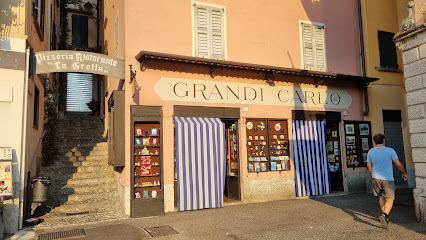
3GRANDI
Explore 3GRANDI in Bellagio for unique ceramics, exquisite jewelry, and handcrafted gifts that embody the beauty of Lake Como.
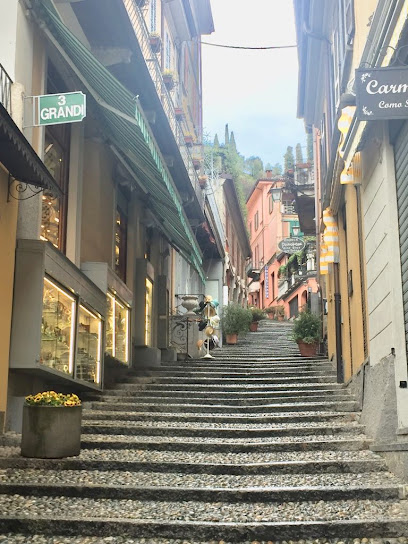
Bellagioseta
Explore Bellagioseta in Bellagio for unique reversible clothing that embodies Italian style and sophistication amidst stunning Lake Como scenery.
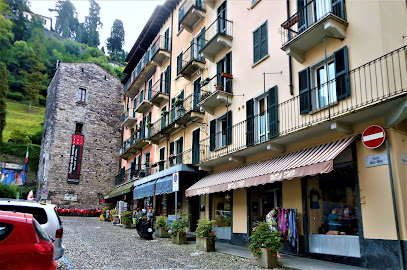
DEALS ISLAND
Explore the elegance of Italian fashion at Deals Island, a charming dress store in the heart of Bellagio, Lake Como.
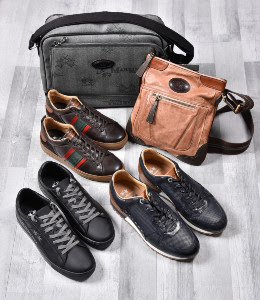
Bellagio
Explore Bellagio's charming gift shop, a hidden gem offering exquisite local crafts and unique souvenirs reflecting the beauty of Lake Como.
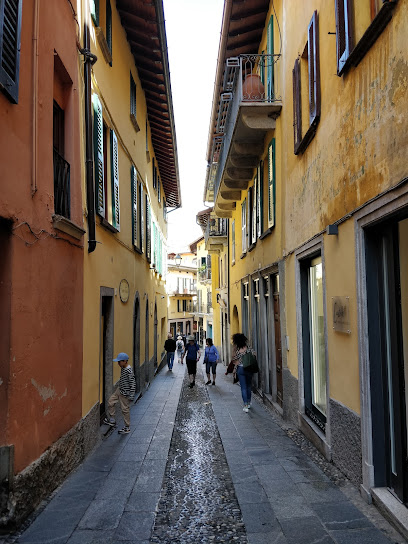
Corner Shop Bellagio
Explore the exquisite jewelry at Corner Shop Bellagio, where craftsmanship meets the enchanting charm of Lake Como's picturesque landscapes.
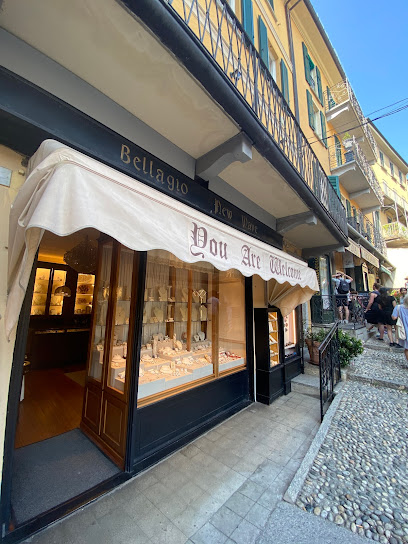
My Como
Discover My Como: Your go-to souvenir store for unique gifts, stunning costume jewelry, and stylish dresses in the heart of Como.
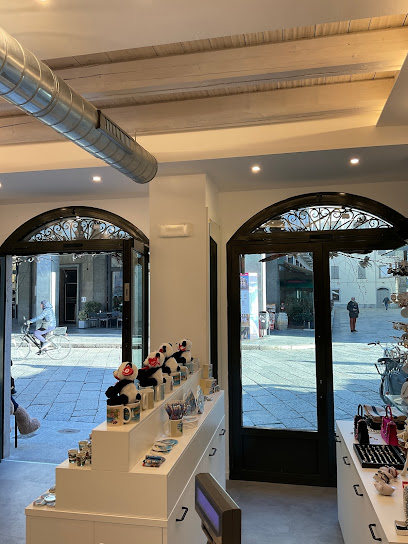
Souvenir D'Italie
Discover unique Italian treasures at Souvenir D'Italie in Bellagio, where every item tells a story of Italy's rich culture and artistry.
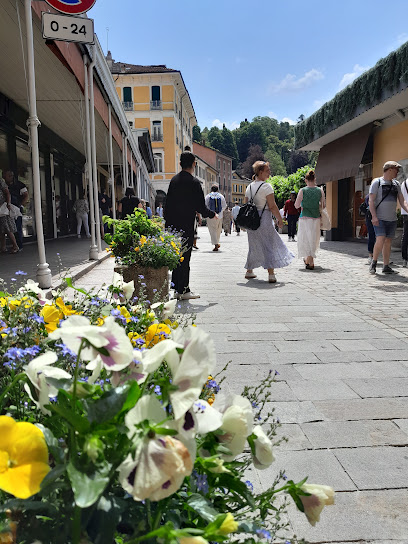
MILEDO Boutique
Explore the elegance of MILEDO Boutique in Bellagio, where Italian style meets exceptional quality in a charming lakeside setting.
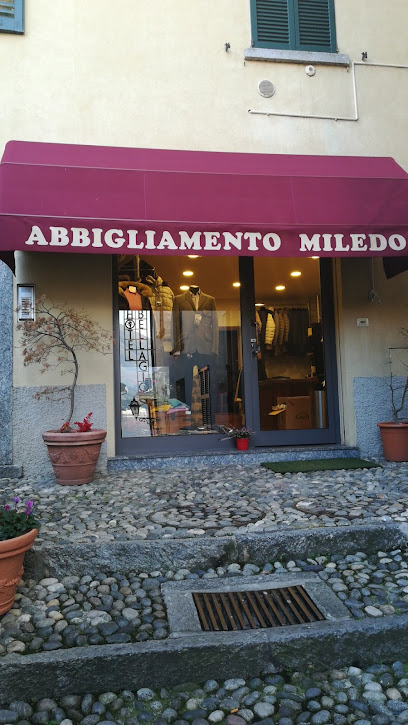
Essential bars & hidden hideouts
Alle Terrazze Como
Discover Alle Terrazze Como, where culinary delights meet breathtaking views of Lake Como for an unforgettable dining experience.
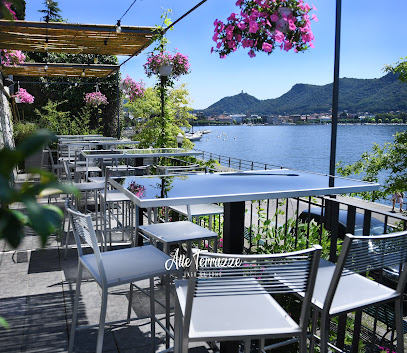
Vintage Jazz Food & Wine
Discover the culinary artistry of Vintage Jazz Food & Wine, where exquisite flavors meet a lively atmosphere in the heart of Como.
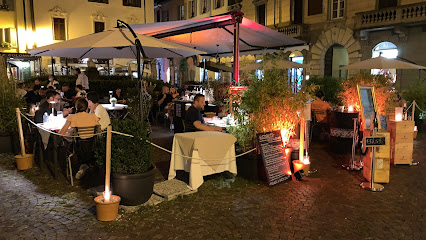
il Birrivico
Discover the essence of Italian hospitality at il Birrivico, a cozy bar and restaurant in the heart of Como, offering delicious local cuisine and stunning ambiance.
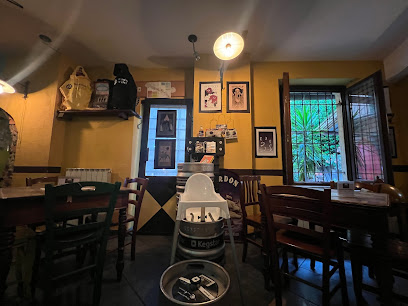
Fresco Cocktail Shop
Experience the art of cocktails at Fresco Cocktail Shop, Como's premier destination for artisanal drinks and unforgettable evenings.
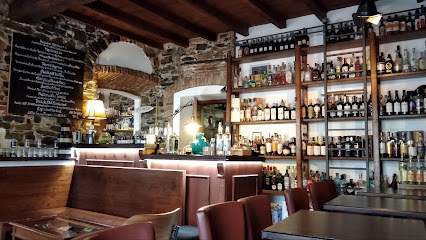
Terrazza 241
Discover the luxurious Terrazza 241, a premier bar and restaurant with stunning views of Lake Como, offering an exquisite dining experience for tourists.
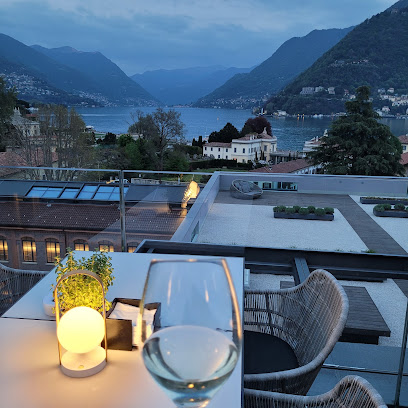
Est Est Est Art & Music Club
Experience the best of Como's nightlife at Est Est Est Art & Music Club, where live music, delicious food, and creative cocktails come together.
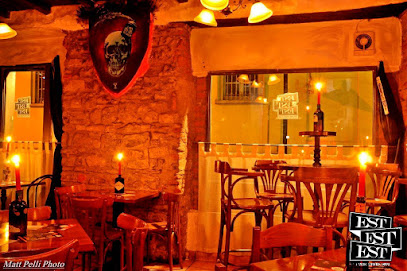
Hemingway
Experience the essence of Como at Hemingway, where innovative cocktails and a vibrant atmosphere create unforgettable moments.
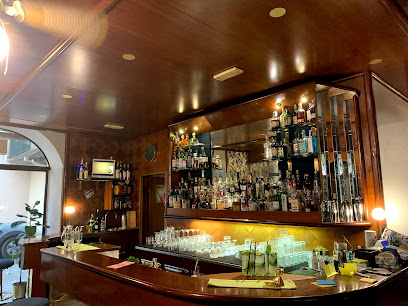
Cantina Follie
Discover exquisite local wines and charming ambiance at Cantina Follie, the perfect retreat for wine lovers in Tremezzina.
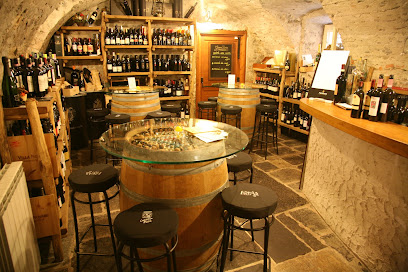
Bar Il Cortiletto
Discover Bar Il Cortiletto in Como for an unforgettable cocktail experience with a local twist, where quality meets charm in every sip.
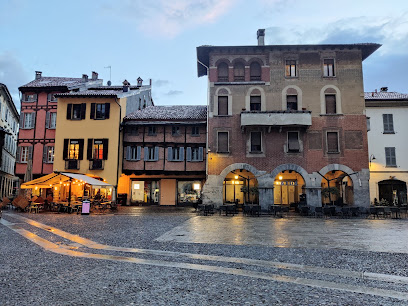
Lo Scalo Craft Drinks By The Lake
Discover Lo Scalo Craft Drinks By The Lake, where exquisite cocktails and stunning lake views create an unforgettable Italian experience.
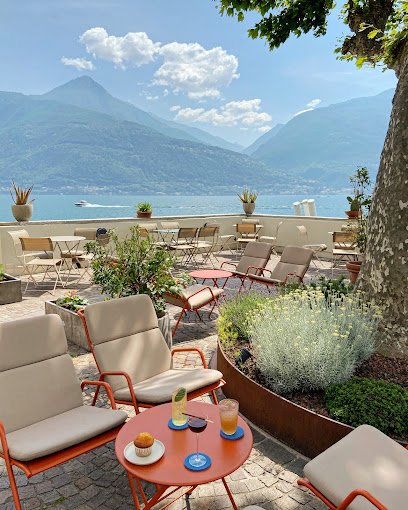
LUCE COMO
Experience the vibrant atmosphere of Luce Como - a perfect bar and bistro for refreshing cocktails and delightful Italian cuisine.
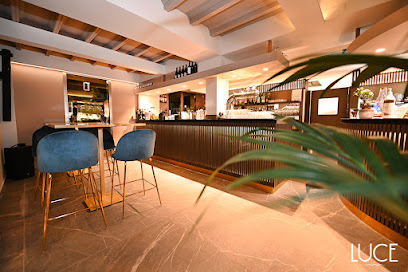
Bar La Quinta
Discover the charm of Bar La Quinta in Como, where delightful drinks meet a warm atmosphere in the heart of Italy's stunning lakeside city.
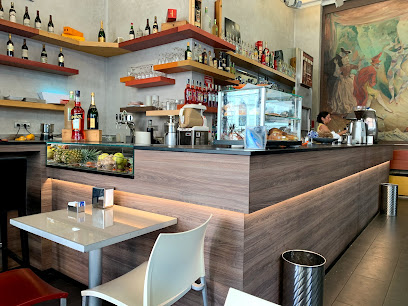
Minimalismo Livingroom Wine & Cocktail Bar
Discover the stylish Minimalismo Livingroom Wine & Cocktail Bar in Como, where exquisite cocktails and a chic ambiance await you.
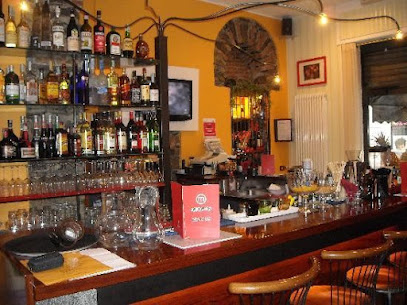
Spirit Cafè & Cocktail Room
Discover the vibrant Spirit Cafè & Cocktail Room in Como, where expertly crafted cocktails meet a cozy atmosphere and delightful social experiences.
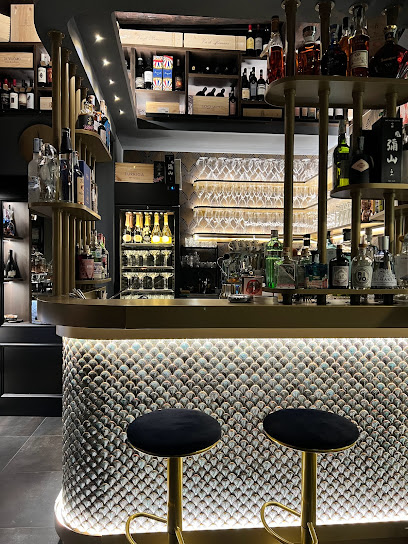
Local Phrases about Lake Como
-
- HelloCiao
[chow] - GoodbyeArrivederci
[ah-ree-veh-dehr-chee] - YesSì
[see] - NoNo
[noh] - Please/You're welcomePer favore/Prego
[pehr fah-vo-reh/preh-goh] - Thank youGrazie
[grah-tsyeh] - Excuse me/SorryScusi/Mi dispiace
[skoo-zee/mee dees-pyah-cheh] - How are you?Come stai?
[koh-meh stai?] - Fine. And you?Bene. E tu?
[beh-neh. eh too?] - Do you speak English?Parli inglese?
[pahr-lee een-gleh-zeh?] - I don't understandNon capisco
[non kah-pee-skoh]
- HelloCiao
-
- I'd like to see the menu, pleaseVorrei vedere il menu, per favore
[vohr-reh-ee veh-deh-reh eel meh-noo, pehr fah-vo-reh] - I don't eat meatNon mangio carne
[non mahn-joh kahr-neh] - Cheers!Salute!
[sah-loo-teh] - I would like to pay, pleaseVorrei pagare, per favore
[vohr-reh-ee pah-gah-reh, pehr fah-vo-reh]
- I'd like to see the menu, pleaseVorrei vedere il menu, per favore
-
- Help!Aiuto!
[ah-yoo-toh] - Go away!Vai via!
[vah-ee vee-ah] - Call the Police!Chiamate la Polizia!
[kyah-mah-teh lah poh-lee-tsya] - Call a doctor!Chiamate un dottore!
[kyah-mah-teh oon doh-toh-reh] - I'm lostMi sono perso
[mee soh-no pehr-soh] - I'm illSto male
[stoh mah-leh]
- Help!Aiuto!
-
- I'd like to buy...Vorrei comprare...
[vohr-reh-ee kohm-prah-reh] - I'm just lookingSto solo guardando
[stoh soh-loh gwar-dahn-doh] - How much is it?Quanto costa?
[kwahn-toh koh-stah?] - That's too expensiveÈ troppo caro
[eh troh-poh kah-roh] - Can you lower the price?Può abbassare il prezzo?
[pwoh ahb-bahs-sah-reh eel preh-tsoh?]
- I'd like to buy...Vorrei comprare...
-
- What time is it?Che ore sono?
[keh oh-reh soh-no?] - It's one o'clockÈ l'una
[eh loo-nah] - Half past (10)Sono le dieci e mezza
[soh-no leh dyeh-chee eh meh-tzah] - MorningMattina
[maht-tee-nah] - AfternoonPomeriggio
[poh-meh-ree-joh] - EveningSera
[seh-rah] - YesterdayIeri
[yeh-ree] - TodayOggi
[oh-jee] - TomorrowDomani
[doh-mah-nee] - 1Uno
[oo-noh] - 2Due
[doo-eh] - 3Tre
[treh] - 4Quattro
[kwah-troh] - 5Cinque
[cheen-kweh] - 6Sei
[seh-ee] - 7Sette
[seht-teh] - 8Otto
[oht-toh] - 9Nove
[noh-veh] - 10Dieci
[dyeh-chee]
- What time is it?Che ore sono?
-
- Where's a/the...?Dov'è...?
[doh-veh] - What's the address?Qual è l'indirizzo?
[kwahl eh leen-dee-ree-tsoh] - Can you show me (on the map)?Puoi mostrarmi (nella mappa)?
[pwah-ee mohs-trahr-mee (neh-lah mahp-pah)] - When's the next (bus)?Quando passa il prossimo (autobus)?
[kwahn-doh pahs-sah eel prohs-shee-moh (ow-toh-boos)] - A ticket (to ....)Un biglietto (per ....)
[oon beel-lyet-toh (pehr)]
- Where's a/the...?Dov'è...?
History of Lake Como
-
The history of Lake Como can be traced back to the Bronze Age, around the first millennium BC, when it was inhabited by the Celtic tribes known as the Orobii. Archaeological findings suggest that the area was a significant settlement long before the Roman conquests.
-
Lake Como, or Larius as it was called by the Romans, became an important hub during the Roman Empire. The Romans appreciated its strategic location and mild climate, leading to the establishment of luxurious villas along its shores. Notable Romans, including Pliny the Younger, had estates here. The remains of Roman roads, bridges, and other structures still bear witness to this era.
-
During the Middle Ages, Lake Como was a contested region among various noble families and city-states. Fortified castles and towers were erected to defend against invasions. The town of Como itself was a significant medieval center, with its Romanesque cathedral, the Como Cathedral, begun in 1396 and completed in 1740, standing as a testament to this period.
-
The Renaissance brought a period of prosperity and cultural flourishing to Lake Como. Wealthy Milanese families built grand villas and gardens, which became centers of art and learning. The influence of the Renaissance is still evident in the architecture and art found around the lake. By the Enlightenment period, Lake Como had become a favored retreat for European aristocrats and intellectuals.
-
The Napoleonic Wars had a substantial impact on Lake Como. Napoleon Bonaparte's influence led to the annexation of the region into the Cisalpine Republic, and later the Kingdom of Italy. Many of the region's fortifications were dismantled during this time, and new infrastructure projects were initiated, including the construction of roads and the enhancement of navigational routes on the lake.
-
In the 19th century, Lake Como emerged as a popular tourist destination, especially among the British aristocracy and other affluent Europeans. The construction of the Como–Colico railway made the region more accessible, further boosting its appeal. The picturesque landscape, combined with the elegant villas and gardens, attracted writers, artists, and musicians who found inspiration in its serene beauty.
-
Lake Como played a minor but notable role during the World Wars. In World War II, the region was under German control until the final days of the conflict. It was near Lake Como that Benito Mussolini was captured and executed in 1945. In the post-war period, Lake Como continued to thrive as a tourist destination, evolving into a luxurious getaway spot for the global elite, with modern amenities complementing its historic charm.
Lake Como Essentials
-
Lake Como is located in the Lombardy region of northern Italy. The nearest major airports are Milan Malpensa (MXP), Milan Linate (LIN), and Bergamo Orio al Serio (BGY). From these airports, you can take a train or rent a car to reach Lake Como. The main train stations serving the area are Como San Giovanni (for the western shore) and Varenna-Esino (for the eastern shore). Alternatively, you can drive from Milan, which takes approximately 1 to 1.5 hours, depending on traffic.
-
Lake Como offers various transportation options including trains, buses, and ferries, which connect the towns around the lake. Trains are frequent and reliable for travel between Milan and Como or Varenna. Buses run along the lakeshore and are a good option for visiting towns not directly on the train line. Ferries and hydrofoils operate on the lake, providing scenic and efficient travel between towns like Bellagio, Menaggio, and Varenna. Taxis and car rentals are also available, but parking can be limited in the smaller towns.
-
The official currency of Italy is the Euro (EUR). Credit and debit cards are widely accepted in hotels, restaurants, and shops around Lake Como. However, it is advisable to carry some cash for small purchases, especially in more remote areas or for market shopping. ATMs are readily available in all major towns around the lake.
-
Lake Como is generally a safe destination for tourists. However, like any other tourist spot, it is advisable to stay vigilant. Pickpocketing can occur in crowded areas and on public transport, so keep an eye on your belongings. The towns around Lake Como do not have high-crime areas specifically targeting tourists, but it is always wise to take standard precautions such as avoiding poorly lit areas at night.
-
In case of an emergency, dial 112 for immediate assistance, which is the emergency number for police, medical, and fire services in Italy. Hospitals and medical clinics are available in major towns such as Como and Lecco. Pharmacies are also widely available for minor health issues. It is advisable to have travel insurance that covers medical emergencies.
-
Fashion: Do dress stylishly but comfortably, as Italians take pride in their appearance. Avoid overly casual clothing when dining out or visiting upscale areas. Religion: Do respect religious sites by dressing modestly; cover your shoulders and knees when entering churches. Public Transport: Do validate your ticket before boarding trains and buses. Don't eat or drink on public transport. Greetings: Do greet people with a 'Buongiorno' (good morning) or 'Buonasera' (good evening). A handshake is common. Eating & Drinking: Do try local dishes and wines. Don't ask for condiments like ketchup, as it may be seen as disrespecting the chef's creation.
-
To experience Lake Como like a local, visit the weekly markets held in various towns for fresh produce and local goods. Engage with locals, as they are often friendly and willing to share insights about the area. Don’t miss taking a stroll on the Greenway del Lago di Como, a scenic walking path that connects several lakeside towns. For a unique experience, rent a small boat to explore the lake on your own terms and discover hidden coves and beaches.
Trending Landmarks in Lake Como
-
Cattedrale di Santa Maria Assunta - Duomo di Como
-
Villa Carlotta
-
Villa del Balbianello
-
Villa Olmo
-
Castello di Vezio
-
I Giardini di Villa Melzi
-
Porta Torre
-
Tempio Voltiano
-
Punta Spartivento
-
Basilica di San Fedele
-
Alessandro Volta Statue
-
War Memorial
-
Monumento alla Resistenza Europea
-
Broletto
-
Lakeview Cernobbio
Nearby Cities to Lake Como
-
Things To Do in Locarno
-
Things To Do in Ascona
-
Things To Do in Bergamo
-
Things To Do in Milan
-
Things To Do in St. Moritz
-
Things To Do in Arosa
-
Things To Do in Davos
-
Things To Do in Grindelwald
-
Things To Do in Zermatt
-
Things To Do in Balzers
-
Things To Do in Murren
-
Things To Do in Triesenberg
-
Things To Do in Vaduz
-
Things To Do in Schaan
-
Things To Do in Interlaken













